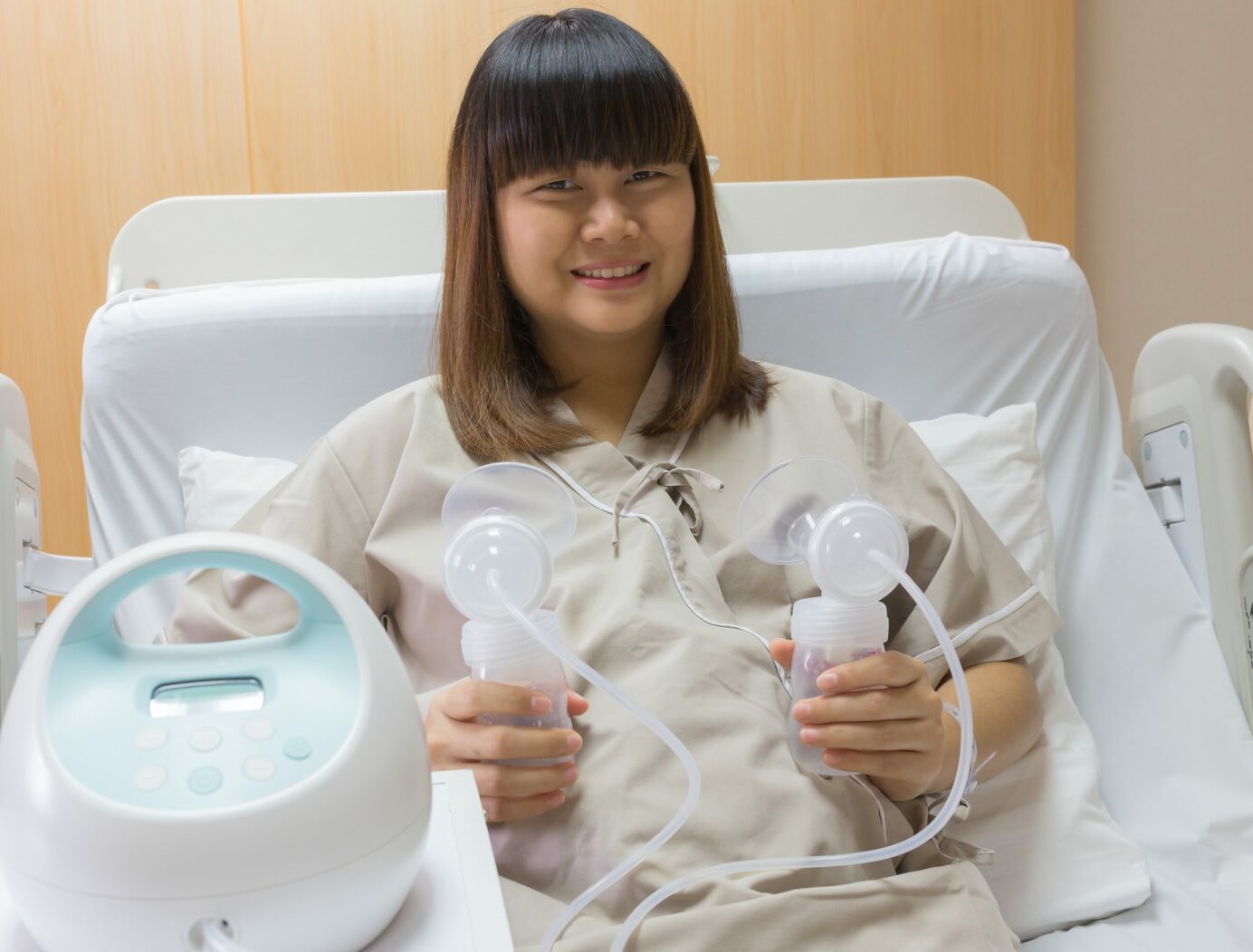
How we help to facilitate breastfeeding
August 04, 2021
When a family finds their child unexpectedly under the care of a hospital, the choices you are allowed to make become limited. Suddenly, you’re following guidance from doctors and nurses instead of being at home. You’re spending your days on a busy ward and sometimes breastfeeding your baby isn’t an option. When a parent has planned to breastfeed, it can feel stressful to learn that if you still want to provide breastmilk, you need to learn to express.
It’s a situation that we see all too often across our Ronald McDonald Houses in the UK.
For World Breastfeeding Week, we wanted to highlight how our Houses work with the hospitals to make the process of breastfeeding via expressing, as easy as possible for mums.
Our Charity doesn’t just provide a free ‘home away from home’, we strive to go above and beyond for families to make their medical journey as stress-free as possible.
I remember sitting on the bed and I popped Friends on my phone, and I sat and I pumped my breast milk and that was the time I had created the most milk that I had the whole time in hospital.
mum, Kate
If a mum has chosen to breastfeed their child, they may need to pump or express milk. For most of our families, it’s because their baby is premature and in an incubator. Or, their baby or toddler might be in hospital with another condition that makes it impossible to breastfeed via skin-to-skin contact. With the help of the medical team at the hospital or a breastfeeding counsellor, pumping or expressing milk can be achieved either by hand, a manual or an electric breast pump.
“Ronald McDonald Houses also help the children; parents aren’t tired from travelling long distances and suffering from the stress of being separated. Because parents are able to visit regularly, babies benefit from the interaction with their parents and get lovely skin-to-skin time. For mums that want to breastfeed, being so close can improve their ability to be able to express regularly and provide milk for their baby.” – Senior Sister, Trevor Mann Baby Unit in Brighton, Jackie Cherry
How our Charity helps to facilitate breastfeeding
In some of our Ronald McDonald Houses, we are fortunate enough to be able to provide sterilised hospital-grade electric pumps. We work closely with our partnered NHS hospital trusts, and are supplied a selection of cups and tubing to make the experience as simple as possible. Parents can sign these items in and out so they are able to express in the comfort of their own room at the House or in one of our designated lounge areas where screens have been fitted for privacy. We are also able to provide space in the communal freezers where they can store milk.
Because our Houses are based a short distance from the hospital, being able to go to the House to express and then go back to the ward, makes it possible to still be able to feed their child as they would at home, allowing parents to continue breastfeeding despite the circumstances.
“As I was only seconds away from Luke, I could express milk for him throughout his stay – something that would have been impossible at home.”
mum, Laura
An issue that often arises are parents feeling that they are struggling to express due to stress – understandable considering the difficult medical situation they have found themselves in.
“Some parents worry that stress can impact on their milk supply and it’s natural to worry when you are going through a difficult experience. But research suggests that milk supply and breastfeeding is robust process. We continue to make blood and tears. Milk is another body fluid that our hormones and systems are designed to produce. Relaxation techniques can help with your flow of oxytocin which helps your flow of milk. If you are expressing: using the pump that’s right for you, massage (before and during), warm compresses, breathing techniques and listening to music or watching your favourite TV programme have all been known to help.” – Association of Breastfeeding Mothers (ABM)
For more information on how to express by hand, manual or electric pump, AMB provide details in their leaflet which you can download here.
If you are experiencing difficulties and would like to talk to someone, reach out to the breastfeeding support at your hospital or call the National Breastfeeding Helpline on 0300 100 0212.
Help us provide free home away from home accommodation to support families with children in hospital with a donation.
